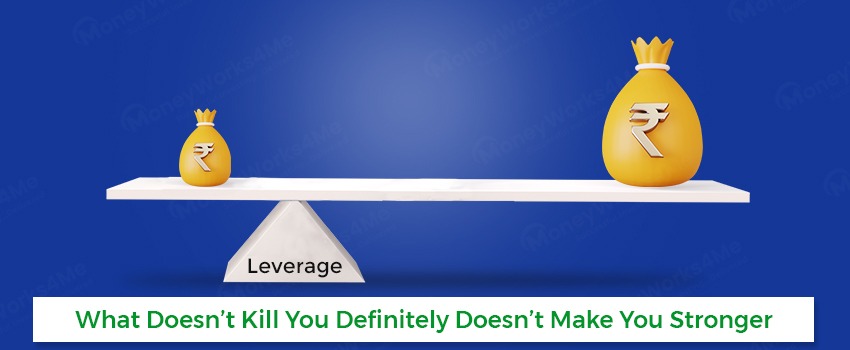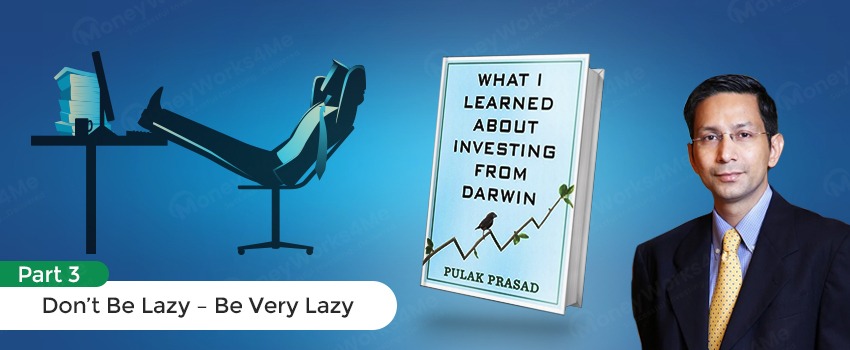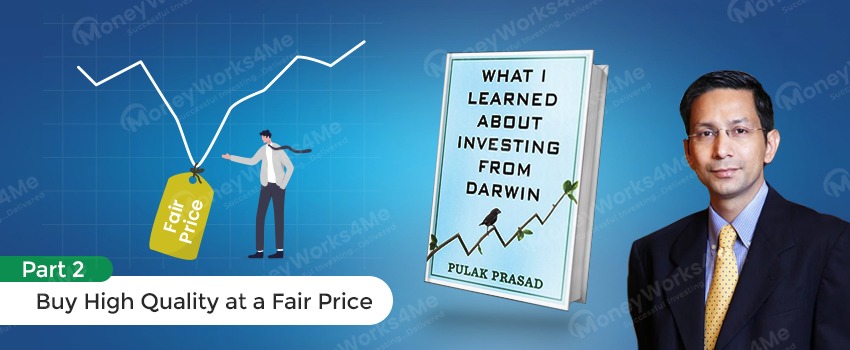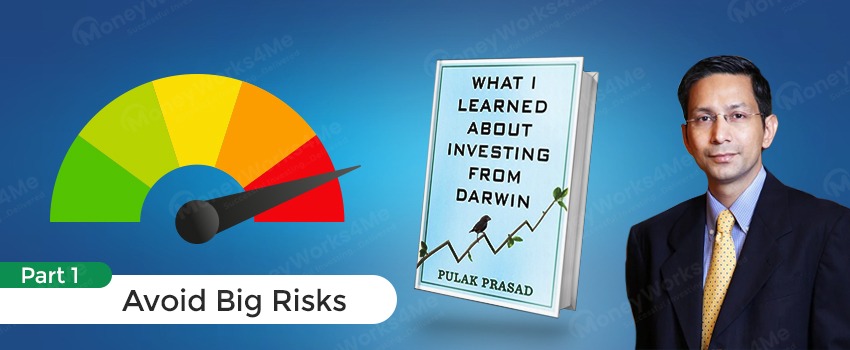‘Patience is a virtue’, more so in the world of investing! Patiently waiting for bargains to come your way, is often the best strategy an investor can follow. We are constantly dealing with different market conditions. It is important for us to realize the investment environment we are currently in and act accordingly. There may be times when greed and fear are balanced. At such times, everything will be fairly priced. And thus markets may not present great buying opportunities at bargain prices or selling at irrationally high prices. And at such times, doing nothing at all is the best option we have.
However, this is easier said than done. Let me give you an oft mentioned example. In soccer penalty kicks, goalkeepers choose their action before they can clearly observe the kick direction. (The ball takes 0.2 seconds to reach the goal after it is kicked, giving the keeper insufficient time to observe its direction and compelling him to make a guess). A research from 2005 shows that given the probability distribution of kick direction, the optimal strategy for goalkeepers is to stay in the goal’s centre. Goalkeepers, however, almost always jump right or left. What drives them is the bias to Act rather than stand still. After all to have tried and failed seems immensely better than standing still and failing.
Consider yourself in the same position as an investor. Do you buy, sell or hold? Would trying and diminishing your returns seem better than standing still and diminishing your returns? Wouldn’t doing nothing seem irresponsible?
Well, individual investors like us have a great advantage, if we can just capitalize on it! Like the goalkeeper, we do not need to act all the time. The only penalty we face is for making investments that lead to capital losses. There is however no penalty for missing a few winning opportunities (except of course the potential returns). As Warren Buffett says, ‘It is better to make errors of omission rather than those of commission’
The Low return-high risk market environments, is another time when you should be sceptical of your actions. Typically this would mean a scenario when prices have had a good run-up. It requires exceptional skill and good luck to make money from the low return markets. Because when prices are high, it is inevitable that the prospective returns are low. On the other hand, high return-low risk environment provides us with ample opportunities at low prices, that too with low risk! This would mean a scenario where prices have been beaten down irrationally and everyone is fleeing away from any risk. This is the time when value investors like us should not shy away from taking a little risk.
One efficient way of avoiding action bias is knowing what you don’t know. As Marks puts is ‘(a) it’s hard to know what the macro future holds and (b) few people possess superior knowledge of these matters that can regularly be turned into an investing advantage. This definitely does not mean that you can have no superior knowledge over others. With hard work and skill, we can consistently know more than the next person about individual companies and securities, but that’s much less likely with regard to markets and economies.
No one likes having to invest for the future under the assumption that the future is largely unknowable. On the other hand, if it is, we’d better face up to it and find other ways to cope than through forecasts. What ever limitations are imposed on us in the investment world, it’s a heck of a lot better to acknowledge them and accommodate than to deny them and forge ahead.
One key question investors have to answer is whether they view the future as knowable or unknowable. Investors in the first category, who feel they know what the future holds will act aggressively: they will borrow to invest, not diversify and count on future growth— thus increasing risk. On the other hand, those who feel they don’t know what the future holds will act quite differently: diversifying, hedging, not borrowing, emphasizing value today over growth tomorrow, and being prepared for a variety of possible outcomes. The knowledge of the market condition you are in along with the knowledge of what you cant know… will definitely lead to better investing decisions. As Mark twain puts: “It ain’t what you don’t know that gets you into trouble. It’s what you know for sure that just ain’t so.”
And Lastly, I reiterate my point on market cycles that I mentioned in my previous blog. You should attempt to know where you stand today w.r.t. the market cycle and what implications should that have on your actions. We cannot know when a particular trend will reverse, but every trend will stop sooner or later. Nothing goes on forever.
So what can we do about cycles? If we can’t know in advance how and when the turns will occur, how can we cope? To this Marks says, ‘We may never know where we’re going, but we’d better have a good idea where we are. That is, even if we can’t predict the timing and extent of cyclical fluctuations, it’s essential that we strive to ascertain where we stand in cyclical terms and act accordingly.’
To identify cycles there are a few thing you would need to do: (a) stay alert for occasions when a market has reached an extreme, (b) adjust your behaviour in response and, (c) most important, refuse to fall into line with the herd behaviour that renders so many investors dead wrong at tops and bottoms.
The subprime crisis years 2007– 2008 is one example of this herd behaviour. It ended up being an extremely painful time for markets and their participants or as the greatest learning experience in our lifetimes. Being attentive to this market exuberance would have helped you avoid great losses.
So what was your stance in 2008 and what strategy did you follow? You can send in your replies through the comments section.
If you liked what you read and would like to put it in to practice Register at MoneyWorks4me.com. You will get amazing FREE features that will enable you to invest in Stocks and Mutual Funds the right way.
Need help on Investing? And more….Puchho Befikar
Kyunki yeh paise ka mamala hai
Start Chat | Request a Callback | Call 020 6725 8333 | WhatsApp 8055769463









